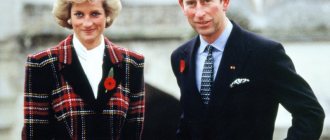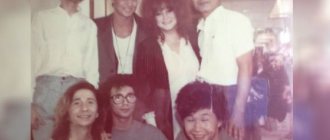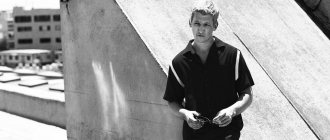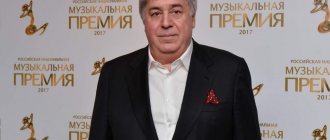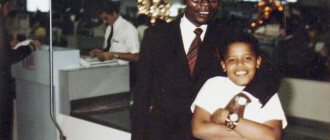Childhood. The beginning of the career of Cesc Fabregas
Francesc Fabregas i Sule was born in the Spanish city of Arenis de Mar, located on the Mediterranean coast of Catalonia. Fabregas' father was not only fond of football, but also played it at a professional level. In his youth, he tried out for Barcelona, but did not stay with the team for long and subsequently joined the local third division club, where he spent his entire career. Cesc's father supported him in his desire to become a footballer; His mother was also proud of her son’s football talent - the parents attended all school matches with Fabregas’ participation, encouraged his success and even took time off from work on Saturdays to take their son to training. His father, who was the first to recognize football talent in Fabregas, encouraged him to train as part of the youth team of a local football team that plays at the amateur level.
Cesc Fabregas started playing football thanks to his father
Fabregas's first professional club was the Mataro team from the city of the same name. Cesc played in the Mataro youth team until he was ten years old. At the age of ten, during one of the Mataro games, the play of the future football genius was noticed and highly appreciated by one of the Barcelona scouts, Rodolfo Borrell. A scout, searching for football talent among children in Barcelona and its suburbs, arrived in Mataro, a town ten kilometers from the Catalan capital. At the age of ten, Fabregas was already not only a midfielder, but also the captain of the eleven-year-old team. Borrell's surprise knew no bounds - he had already attended Mataro games three times before, but did not see Fabregas on the field. When Rodolfo told the Mataro junior coach about this, he answered him: “I knew that you would take him right away, so I deliberately left the boy on the bench.”
Borrell initiated immediate negotiations between Barcelona and the little midfielder’s family, which ended with the parents agreeing to admit their son to the La Masia football academy. Cesc was to join his peers from the legendary Barça youth team a year later, at the age of eleven, and until that moment Fabregas continued to show dizzying success in the modest Mataro.
Soon Fabregas ended up in Barcelona. Future football stars Gerard Pique and Lionel Messi, who lived right at the Barcelona base, studied with Cesc in the youth team. In contrast, Fabregas continued to live at home and spend more than three hours every day commuting to the academy. Cesc returned home by eleven and, tired, began to do his school homework. Morning training began at seven in the morning - we had to get up very early. Fabregas hardly got enough sleep.
When Cesc was 14 years old, his parents divorced. The guy was very worried about the divorce, which began to affect not only his school activities, but also his training at the academy. The depression became more and more profound. Rodolfo Borrell, deciding to slightly cheer up Fabregas, decided to give him a gift from Pep Guardiola, whom Cesc considered his idol. Guardiola, when signing a T-shirt for Fabregas, did not limit himself to the banal “with love”. A sincere, kind footballer wrote a wish to Fabregas, which later became prophetic for the young midfielder: “One day you will become Barcelona’s number four.”
In the Barça youth team, Fabregas became a defensive midfielder. It was in this position that Guardiola played at one time. Cesc's successes in the youth team were dizzying - sometimes the midfielder scored more than thirty goals in a season, despite the fact that he was a midfielder. However, despite this, the young footballer had practically no prospects of getting into the first team - then a truly “star” course was studying at the Barca academy, and Fabregas had practically no chance of getting into the “first team”.
The famous Arsene Wenger took advantage of this when he assembled the second squad of the London Arsenal. Wenger promised Fabregas that he would very soon take to the field in the second team of the Gunners' main team. As a result, Arsene managed to convince Cesc that he was right.
Childhood and youth
Francesc Fabregas Insule, better known as Cesc Fabregas, was born on May 4, 1987 in Arenys de Mar, a city on the Mediterranean coast (Catalonia, Spain). His father Francesca is the owner of a real estate company, and his mother Nuria is the owner of a confectionery company. Cesc attended his first match with his grandfather; the boy was 9 months old at that time.
Video course “Spring”
Landscaping for busy people, a beautiful garden without the hassle
A training course for those who want to make their dacha beautiful and prefer to spend their time, effort and money wisely.
Special offer! 50% discount! Make good use of your self-isolation!
₽ 1200.00 ₽ 600.00
MORE ❯❯❯
Cesc Fabregas as a child
When Cesc grew up, his parents decided to enroll the boy in football classes. It was his father who was the first to notice his son’s talent, and it was he who pushed him to train. His parents supported Cesc in every possible way and encouraged his success.
"Arsenal"
After brilliant performances for the Barcelona youth team and the Spanish national team, Fabregas could not help but become the object of Arsene Wenger's close attention. It was then that Cesc became a potential “building block” of the legendary football professor’s serious project.
An important role in the development of Fabregas was played by the fact that while playing at Barça, the midfielder was part of the youth team, and from the Gunners, from the very first day of his contract, he received a place in the reserves of the adult Arsenal. This happened in 2003. As compensation, van Bronckhorst moved from Arsenal to the Barcelona academy. The cash reward for the deal in favor of Barcelona amounted to 700 thousand pounds.
Naturally, Fabregas was not immediately able to get a place on the field and spent the first time on the bench, paying increased attention to training between matches. The first matches in which Cesc had the opportunity to take the field were meetings in the English League Cup. The young midfielder's debut on the field took place on October 23, 2003 in a Cup match with Rotherham. The Gunners won this match. Arsenal's youngest debutant scored his first goal a little later during the match with Wolverhampton. The match ended with a devastating, but quite normal score for the English Premier League, 5:1 in favor of the Londoners.
At first, Fabregas lived in the Barnet area, with an old Irish woman, who, according to the contract with Arsenal, provided rooms for all the team’s debutants, fed the guys and monitored their pastime. Only after seriously establishing themselves among the Londoners did the legionnaires gain the right to find housing to suit their taste. Fabregas became friends with the Irish woman, and after he moved out from her, he continued to visit her twice a month.
The conditions were, frankly, Spartan - a small room with a minimal set of furniture and an old TV. Fabregas's girlfriend remained in Catalonia and was able to move to London only two years later. At first, Cesc had no friends at Arsenal. He entertained himself by playing PlayStation, and then only infrequently - the TV to which he connected the console was so tiny that the football player was afraid of losing his sight. Sometimes on weekends - Saturdays and Sundays - the midfielder did not even leave his room.
After some time, Cesc became friends with Philippe Senderos, who lived in the next room. This saved him from complete depression.
The following season, 2004/05, the situation became more positive. Fabregas began to regularly appear on the field in Arsenal's starting lineup, not only in League Cup matches, but also in other tournaments. To some extent, this was facilitated by injuries to the supporting center backs - Vieira was injured at the beginning of the season, and shortly before the equator of the playing year, due to a serious injury, he moved to the Gilberto hospital for a long time. Fabregas signed his first professional contract in September 2004. In December of the same year, Fabregas scored his first goal in a Champions League match. Fabregas finished the season better than ever, making the Gunners' starting team for the FA Cup final and winning his first trophy.
After Arsenal captain Patrick Vieira moved to Juventus, Cesc became the Gunners' main central midfielder. The Arsenal era gradually began to end, and star players left for other clubs. A truly serious loss for Arsenal, which essentially marked the end of an era, was the departure of Thierry Henry from the team in the summer of 2007. However, Cesc was not going to leave the sinking ship, but rather viewed the current situation as a great chance to make his mark. Working on the field in tandem with Henry, Fabregas always tried to pass the ball to him immediately after receiving it - he believed that there was no other choice.
Fabregas was frightened by the huge difference, the gap in class between him and Henri. During one of the post-match conversations, Henry told Fabregas that he did not have to give the ball to him all the time, but after this conversation, Cesc began to do it even more often. This depressed both of them. After Henri's departure, Fabregas seemed to receive a breath of fresh air - his passes to other players began to increasingly be goal-scoring in nature, and Fabregas began to score goals himself. Fabregas at that time was the only hope for Arsenal fans - the club was in the deepest crisis.
Footballer Cesc Fabregas played in the best European clubs
Wenger's friend, David Dean, who was the club's director for many years, left Arsenal. Fabregas was the only one of the entire team who remained loyal to the club, in every possible way denying any rumors about moving to other teams, even to his native Barcelona. At that time, many players took advantage of the team’s precarious position, extorting lucrative contracts with threats and spreading rumors: Ronaldo planned to move to Madrid, Gareth Barry was in full negotiations with Liverpool, Frank Lampard and Didier Drogba were going to sign contracts with Inter. This whole transfer saga bypassed Fabregas - back in 2006, he signed an incredible contract with the club for eight years and had no intention of changing its terms.
Soon, the 21-year-old Spaniard's dedication to Arsenal and quality of play earned him the Gunners' captain's armband. Fabregas became one of the youngest captains of the London club in its entire history, but soon moved to the hospital for four months. Since then, his professional growth has become increasingly accompanied by injuries. Arsenal continued to suffer defeat after defeat, both in European competition and in the championship, did not win a single title for a long time, and the players increasingly began to blame “that guy” for the team’s failures, not themselves. Fabregas, like Wenger, became an opponent of Arsenal's purely British style of play - tough, traumatic. However, soon popularity and recognition spoiled the character of the young captain. He increasingly began to make rude tackles, and behaved rudely, arrogantly and arrogantly with players and even managers from more modest clubs.
Cesc ended his last season at Arsenal as usual - without trophies and with resentment towards the whole world. At the end of the season, Fabregas spent a long time in the hospital, failed Arsenal's key match in the Champions League against Barcelona, but helped the Londoners a lot in the championship. The big problem of the crumbling Arsenal was the discrepancy between the level of most teammates and the class of Fabregas. All this led to the Catalan deciding to leave the London club.
early years
Francesc Fabregas was born on May 4, 1987 in the Catalan city of Arenys de Mar, which is located on the Mediterranean coast. Cesc's first club was Mataro[en] from the city of the same name, but already at the age of 10 he was noticed by Barcelona scouts, and he moved to the academy of the Spanish giant.
Here Fabregas took the position of a defensive midfielder, which his idol, Josep Guardiola, once played. Future stars Lionel Messi and Gerard Pique also played on that team with him. Despite his success (Fabregas sometimes scored more than 30 goals a season for the youth team, although he played as a defensive midfielder), Cesc's prospects in Barcelona were vague, no one knew when he would be given a chance to break into the first team[3]. Therefore, it was not difficult for Arsene Wenger to convince Fabregas that it would be in his interests to move to Arsenal, promising that Cesc would quickly get the opportunity to play for the Gunners' first team.
Barcelona
As soon as Cesc Fabregas began to show his talents at Arsenal, the Spanish media immediately began to talk about his possible move to the Catalan club. At the same time, some moral pressure was exerted on Fabregas by the players of his former club, urging him to join Barcelona. Each opening of the transfer window was accompanied by a surge of rumors that the Catalan had decided to leave Arsenal and would soon announce it officially. These rumors were denied by Fabregas personally. Cesc's statement in May 2010 caused a particular resonance in the press.
Then the footballer said that he was not going to leave Arsenal, but he always dreamed of playing for his native Barcelona, and if he ever leaves the London club, it will be only to move to Barca. In the summer of 2010, the Catalans made their first official offer to Fabregas, which was immediately rejected by representatives of the Londoners, who stated that they would not enter into any negotiations regarding the sale of Cesc. Barcelona increased the amount offered for Fabregas, but this offer was immediately rejected. Wenger has made repeated statements that he has no plans to sell the team's key player.
The situation reached its boiling point a year later, in the summer of 2011. By that time, Cesc had already openly stated that he wanted to move to Barcelona. The negotiations took a long time and were not easy, but on August 14 an agreement was reached and Fabregas officially moved to Barcelona. The midfielder's debut for his home team took place three days later, on August 17. It was the return match with Real Madrid in the fight for the Spanish Super Cup. The Classico turned out to be tough - Fabregas became the victim of a brutal tackle by Real Madrid player Marcelo, which led to a massive brawl between the players and coaches of both clubs. On August 22, in a game with Napoli, Fabregas scored his first goal in Barcelona, and on August 26, Fabregas’ goal became the winning goal in the confrontation with Porto in the European Super Cup. During the 2011/12 season, Cesc played a total of 28 matches, scored nine goals and provided 8 assists. Fabregas played nine matches this season in European competition. As a result, together with Barca, the midfielder won four trophies in a season.
Biography and career of a football player
Cesc Fabregas was born in the Catalan city of Ariens de Mar into a fairly wealthy family. His father Francesca was a real estate dealer, and his mother Nuria owned a confectionery factory.
At first, his parents sent him to the football school of the little-known Mataro club, but soon the boy was replaced at the Barcelona academy. There, Cesc looked no worse than his peers, once scoring more than 30 goals in a season, although he played as a defensive midfielder.
But for some reason, Barça, where they treat their players with a certain reverence, did not bother with Fabregas and did not interfere with his transfer to Arsenal.
"Arsenal"
2003-2011
The Londoners were coached by Arsene Wenger, known for his ability to work with young people, and it was he who lured 16-year-old Fabregas to his side. A year later, the Spaniard became a player in the main team of the London club. This was largely due to injuries to the main central midfielders Patrick Vieira and Gilberto Silva, but you must admit that at 17 years old you still need to be able to take advantage of your chance in such a club.
Cesc managed to do this in full - he no longer gave up his place in the team, quickly became the main character in the center of the field, and at the age of 21 received the captain's armband.
He had a particularly great season in 2009-2010, scoring 15 goals in the championship alone. But soon there were rumors that the Spaniard would leave the ranks of the Gunners. The fact is that in those years Arsenal had already begun its slide downwards.
No, the team ended up among the winners, but was no longer able to fight for the championship title. So the only trophies at Arsenal for Cesc were the FA Cup and the FA Super Cup, won at the dawn of his London career.
Barcelona
2011-2014
Therefore, when Barcelona intended to return their pupil, Fabregas happily moved to the Catalan club, without hiding the fact that he was doing this with the goal of winning at least something. By the way, he was alone in this; for the same reasons Thierry Henry and Robin Van Persie left Arsenal.
In general, this wish of Fabregas came true. After his debut - it was the return match for the Spanish Super Cup against Real Madrid, Cesc raised his first trophy over his head in Barcelona, and nine days later he won the European Super Cup with the team. In that meeting against the Portuguese Porto, Cesc scored his first goal for Barcelona.
At first glance, everything was fine with Fabregas - he regularly played in the first team, won titles. But in London he was used to being the first, and in Barca Xavi, Iniesta and Leo Messi ruled the roost, and no matter how great Cesc played, he was still in the shadow of these players.
It was this, and nothing else, that determined Fabregas’ desire to return to England.
Chelsea
2014-present
Although it was London again, the club was different. The first season at Chelsea was mind-blowing - 18 assists in the championship alone, victories in the Premier League and League Cup. And the trio of Cesc Fabregas - Eden Hazard - Diego Costa simply terrified the defensive formations of the Blues' opponents.
The next season was marked by failure for Chelsea (10th place in the championship), one of the reasons for which experts called a decline in Fabregas's play. And Antonio Conte, who came to the club in July 2020, identified Cesc as a joker, releasing him more often during the matches. However, the Spaniard was fine and helped the team win another championship title.
But under Maurizio Sarri, Fabregas finally lost his place in the starting lineup and did not come on as a substitute so often.
"Monaco"
2019 – present
However, Cesc did not have to sit on the bench for long - in January 2019 he moved to Monaco, which is now fighting for survival, while Fabregas and our Alexander Golovin are trying to pull the club out of the bottom of the standings.
Spain national team
2006-2016
Cesc Fabregas played for the Spanish national team for 10 years. He is a world champion and two-time European champion. Moreover, at these tournaments he did not sit on the bench (at the European Championships 2008 and 2012 he played in all matches, at the 2010 World Cup he played four matches).
And it was he who, coming as a substitute in the final against Holland, gave an assist to Andres Iniesta, who scored the most important goal in the history of the “red fury”. And at Euro 2012, Fabregas was included in the symbolic team of the tournament.
After the 2020 European Championship, Fabregas stopped being called up to the national team, but it’s not over yet - he’s only 31 years old. So far he has 110 matches and 15 goals scored.
International career of Cesc Fabregas
Since 2006, Fabregas has been playing for the Spanish national team. He participated in the 2006 World Cup, becoming the youngest player on the national team. In 2008, as part of the Spanish team, he won the European Championship, and in 2010, the World Championship. In 2012, he again won the Euro as part of the Spanish national team. Then Fabregas scored two goals and entered the symbolic team of the championship. Fabregas dedicated his victory at the 2010 World Cup to the Arsenal players. The midfielder has repeatedly stated that if he ever has to leave his native club, then only back to Arsenal. Cesc does not want to play in any other clubs.
Personal life
The first official girlfriend of the famous football player was Carla Garcia. Their acquaintance occurred while Fabregas was at Arsenal. This couple was together for seven years. Sesco's family hoped that he would marry Karla, but this did not happen. The reason for the breakup in the couple's relationship is still unknown.
In 2012, 37-year-old Daniella Semaan became the new passion of the Spanish football player. There is a twelve-year age difference between the lovers. Fabregas met a married woman and immediately fell in love with her. Danielle broke off relations with her husband after the lovers were “caught” by the paparazzi. The divorce was long and tedious. The footballer always supported her during this difficult time for his beloved.
Cesc Fabregas and his wife
Daniella gave birth to Cesca's son and two daughters. Her first husband is a prominent businessman Eli Taktuk. Before her marriage to Fabregas, the woman raised her son Joseph and daughter Maria with him.
The footballer's wife regularly attends his home matches. The wedding of Fabregas and Semaan took place only in 2020. The newlyweds chose Cliveden Palace for the ceremony. They entrusted the organization of the wedding event to the eldest daughter of the football player’s wife. The entire palace was decorated with snow-white flowers that day.
Cesc started his own pages on Instagram and Twitter. There he posts his videos and photographs with enviable regularity. In these accounts you can also see pictures of Fabregas’s children and wife.
Personal life of Cesc Fabregas
Cesc Fabregas has been dating Daniela Simaan for quite some time. On April 10, 2013, Daniela gave birth to Fabregas' daughter Lia. In addition, two children from her previous marriage live with Daniela.
Cesc Fabregas with his wife and daughter
Fabregas goes to his family at every opportunity, but football separates him and Daniela. Sometimes it comes to scandals when, on a day off, Fabregas, completely ignoring his family, watches a Dutch second league match or watches a recording of one of Barcelona’s old games for the tenth time. However, despite these differences, Cesc and Daniela love each other and are planning to formalize their relationship soon.

